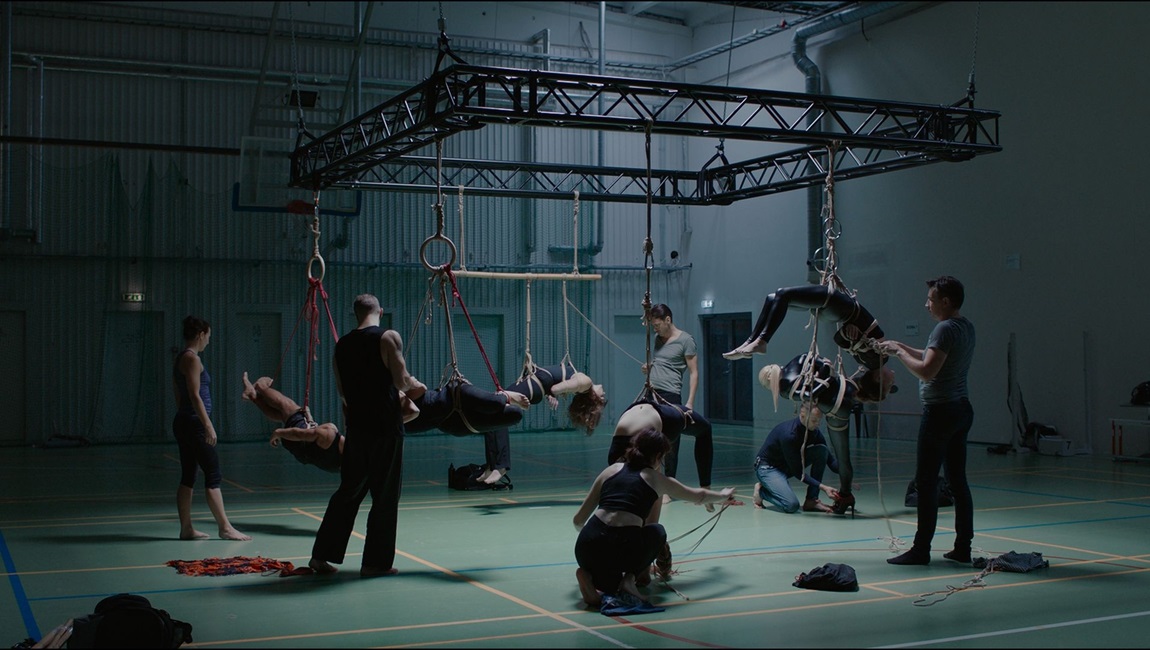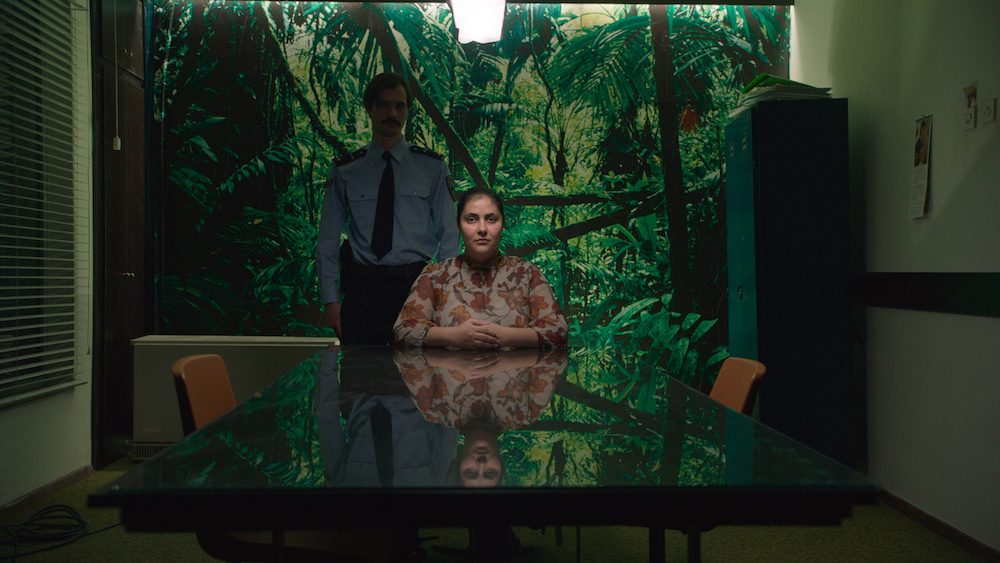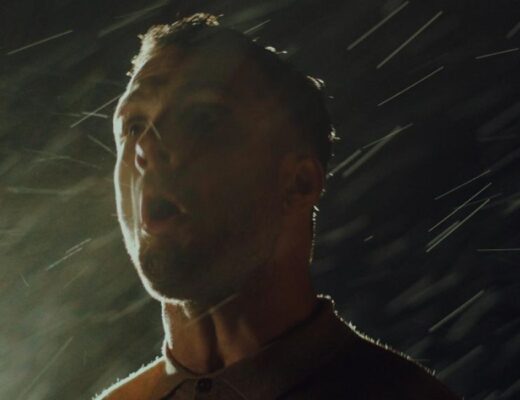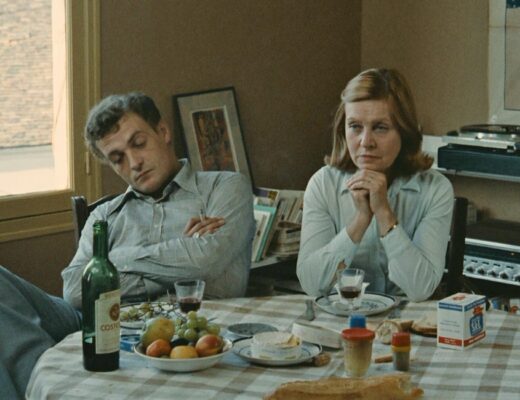One of the most discussed Estonian films of the year, Dark Paradise is a strange beast from one of the country’s most promising and rising young talents, Triin Ruumet. The 35-year-old’s second feature doesn’t tiptoe around such complex and controversial topics like Neo-Nazism, kink, BDSM, and half-sibling incest, but that list makes the rather dark film sound more inflammatory than it presents. In truth, watching Dark Paradise is like partaking in a drunk, sloppy kiss: it’s not good, but it does amuse in its strangeness. The film begins at the funeral of half-siblings Karmen (Rea Lest) and Viktor’s (Jörgen Liik) father. The two clearly have neither a good nor healthy relationship with each other, and, on the night of the funeral, Karmen and her drunk friends invite Viktor into a hot tub for a “baptism” of manhood. They dance, splash around, and clumsily shake their bodies all over the shy and incel-coded Viktor, before tying him up and tattooing a swastika and penis on his face. After one good cry, Viktor embraces the non-consensual tats and becomes something of a small-town terrorist in league with the local biker gang. Karmen translates her grief into kinky sex instead.
Opening in media res, the relationship between the grieving adult children and their deceased father never requires explanation or background. Even if he was a different father to both, he took care of each of them financially. It’s clear he spoiled Karmen, resulting in her whiplash behavior and repugnant episodes, and it will be easy for viewers to lose sympathy for her, particularly after her veritable cruelty in the hot tub. Viktor, on the other hand, remains an easily sympathetic figure on the basis of his shyness and victimhood, until he looks himself in the mirror and decides to embrace the swastika and the murder such a symbol entails.
Karmen’s pathology is particularly visible, and she never hides her longing for intimacy. This leads her to sexual encounters with Renee (Juhan Ulfsak), an attractive man many years her elder. She wants nothing but sex from him, refusing to do something so affectionate like watch TV together or engage in aftercare. Instead, she wants to be choked, whipped, and tied up. The more intense the sex — the more she can feel, in multiple senses — the more she can hide or briefly fill her intimacy craving. Of course, this presentation follows the pattern of simplistic psychological understandings of kink that have been 50 Shades of Grey-ified in modern culture so as to be fundamentally associated with grief and trauma rather reflecting normal, healthy sexual desires. Still, taken on its own terms, there’s nothing really problematic with the stunted expression of sexuality as it’s incorporated in Dark Paradise.
The film’s violence is more puzzling, and it never feels like Ruumet knows what direction to commit to. On at least two occasions, Viktor’s violent sprees depict only the incident’s preceding action and then the outcome, with the edit covering the actual impact of the brutality. This approach at first seems meaningful, like Ruumet might be going for something akin to Lynne Ramsay’s You Were Never Really Here, but it’s all a feint and the usual aestheticization of violence wins the day, whether it be via stabbing or mallet-swinging. Viewers are left to wonder whether the earlier depictions of violence were simple budgetary restrictions, if the choice was meant to reflect the desensitization that Viktor’s new bloody hobby has on his own mental state, or if all just points to a lack of cogency in Ruumet’s vision.
There’s no denying that both narrative threads compel on their own. The sexcapades of Karmen and Renee could successfully fill a film of its own, even if the scenes are never really all that sexy, while Viktor’s self-destructive descent, guided by the film’s most versatile performance in Liik, is never less than compelling. The larger problem, then, is that the two storylines needed to be more carefully tied together rather than merely co-existing side by side. Right up to the end credits, even accounting for the film’s somewhat creepily cathartic final scene in which the two incestually embrace, Dark Paradise‘s two narratives simply never feel like they exist within the same film.







